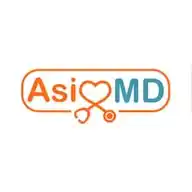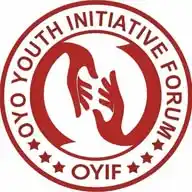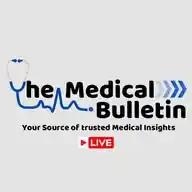
EOhealth Hub
541 subscribers
About EOhealth Hub
EOhealth is a dynamic initiative dedicated to public education for informed health decisions. With a focus on promoting awareness, facilitating access to health services, and fostering a strong community among medical students, EOhealth strives to be a leading healthcare platform globally.
Similar Channels
Swipe to see more
Posts

𝟑. 𝐄𝐱𝐜𝐞𝐬𝐬 𝐅𝐚𝐜𝐢𝐚𝐥 & 𝐁𝐨𝐝𝐲 𝐇𝐚𝐢𝐫 (𝐇𝐢𝐫𝐬𝐮𝐭𝐢𝐬𝐦) PCOS can cause unwanted hair growth on the face, chest, and back. ✅ 𝗪𝗵𝗮𝘁 𝘁𝗼 𝗱𝗼: • Hair removal options include waxing, laser therapy, electrolysis, or shaving. • Medications like oral contraceptives or anti-androgens can help reduce hair growth. • Herbal remedies like spearmint tea (known to reduce androgens) may help.

𝟐. 𝐒𝐭𝐮𝐛𝐛𝐨𝐫𝐧 𝐀𝐜𝐧𝐞 & 𝐎𝐢𝐥𝐲 𝐒𝐤𝐢𝐧 Excess androgens can increase oil production, leading to persistent breakouts. ✅ 𝗪𝗵𝗮𝘁 𝘁𝗼 𝗱𝗼: • Wash your face with gentle, oil-free cleansers and avoid harsh scrubs. • Use topical treatments like benzoyl peroxide or retinoids for acne management. • If acne persists, see a doctor about anti-androgen medications like spironolactone.

𝟔. 𝐌𝐨𝐨𝐝 𝐒𝐰𝐢𝐧𝐠𝐬, 𝐀𝐧𝐱𝐢𝐞𝐭𝐲 & 𝐃𝐞𝐩𝐫𝐞𝐬𝐬𝐢𝐨𝐧 Hormonal imbalances and insulin resistance can contribute to emotional instability. ✅ 𝗪𝗵𝗮𝘁 𝘁𝗼 𝗱𝗼: • Prioritize mental health—practice mindfulness, meditation, and relaxation techniques. • Get enough sleep—poor sleep can worsen mood swings. • Seek therapy or support groups—talking helps!

𝟒. 𝐇𝐚𝐢𝐫 𝐓𝐡𝐢𝐧𝐧𝐢𝐧𝐠 𝐨𝐫 𝐁𝐚𝐥𝐝 𝐏𝐚𝐭𝐜𝐡𝐞𝐬 Some experience male-pattern baldness due to high androgen levels. ✅ 𝗪𝗵𝗮𝘁 𝘁𝗼 𝗱𝗼: • Use minoxidil (Rogaine) to promote hair regrowth. • Reduce stress—high cortisol levels can worsen hair loss. • Check for nutritional deficiencies (iron, vitamin D, biotin) and take supplements if needed.

𝟓. 𝐖𝐞𝐢𝐠𝐡𝐭 𝐆𝐚𝐢𝐧 & 𝐃𝐢𝐟𝐟𝐢𝐜𝐮𝐥𝐭𝐲 𝐋𝐨𝐬𝐢𝐧𝐠 𝐖𝐞𝐢𝐠𝐡𝐭 PCOS is closely linked to insulin resistance, making weight management challenging. ✅ 𝗪𝗵𝗮𝘁 𝘁𝗼 𝗱𝗼: • Follow a low-glycemic diet (whole grains, vegetables, healthy fats, and proteins). • Exercise regularly—strength training and cardio help improve insulin sensitivity. • Consider medications like metformin to manage insulin resistance.

𝐁𝐞𝐲𝐨𝐧𝐝 𝐒𝐲𝐦𝐩𝐭𝐨𝐦𝐬: 𝐅𝐢𝐠𝐡𝐭𝐢𝐧𝐠 𝐒𝐭𝐢𝐠𝐦𝐚 & 𝐑𝐚𝐢𝐬𝐢𝐧𝐠 𝐀𝐰𝐚𝐫𝐞𝐧𝐞𝐬𝐬 PCOS is not just about periods and fertility—it’s a lifelong condition that affects overall health and self-esteem. Yet, many people suffer in silence due to misinformation, shame, and medical gaslighting. 💬 𝐋𝐞𝐭’𝐬 𝐜𝐡𝐚𝐧𝐠𝐞 𝐭𝐡𝐞 𝐧𝐚𝐫𝐫𝐚𝐭𝐢𝐯𝐞: 🚫 𝗦𝘁𝗼𝗽 𝘁𝗵𝗲 𝘀𝘁𝗶𝗴𝗺𝗮—PCOS is real, and those affected deserve proper care, not judgment. 📢 𝗥𝗮𝗶𝘀𝗲 𝗮𝘄𝗮𝗿𝗲𝗻𝗲𝘀𝘀—Too many people are struggling without a diagnosis or treatment. ❤️ 𝗦𝘂𝗽𝗽𝗼𝗿𝘁 𝗲𝗮𝗰𝗵 𝗼𝘁𝗵𝗲𝗿—PCOS affects physical and mental health. Let’s build a community of understanding.

𝟕. 𝐈𝐧𝐟𝐞𝐫𝐭𝐢𝐥𝐢𝐭𝐲 & 𝐓𝐫𝐨𝐮𝐛𝐥𝐞 𝐂𝐨𝐧𝐜𝐞𝐢𝐯𝐢𝐧𝐠 PCOS is one of the leading causes of infertility due to irregular ovulation. ✅ 𝗪𝗵𝗮𝘁 𝘁𝗼 𝗱𝗼: • Work with a fertility specialist for treatment options. • Medications like clomiphene, letrozole, or gonadotropins can help induce ovulation. • In some cases, IVF (in vitro fertilization) may be recommended.

𝟏. 𝐈𝐫𝐫𝐞𝐠𝐮𝐥𝐚𝐫 𝐨𝐫 𝐀𝐛𝐬𝐞𝐧𝐭 𝐏𝐞𝐫𝐢𝐨𝐝𝐬 PCOS often leads to infrequent or missing periods due to lack of ovulation. ✅ 𝗪𝗵𝗮𝘁 𝘁𝗼 𝗱𝗼: • Maintain a healthy weight—losing just 5-10% of body weight can help regulate cycles. • Eat a balanced diet, rich in fiber and low in processed carbs to manage insulin levels. • Consult a doctor about birth control pills or hormonal treatments to regulate periods.

𝐂𝐚𝐮𝐬𝐞𝐬 & 𝐑𝐢𝐬𝐤 𝐅𝐚𝐜𝐭𝐨𝐫𝐬 𝐨𝐟 𝐏𝐂𝐎𝐒 While the exact cause of PCOS is unknown, several factors contribute to its development: ✔ 𝗜𝗻𝘀𝘂𝗹𝗶𝗻 𝗥𝗲𝘀𝗶𝘀𝘁𝗮𝗻𝗰𝗲 – Many people with PCOS have high insulin levels, which can lead to excess androgen production and weight gain. ✔ 𝗛𝗼𝗿𝗺𝗼𝗻𝗮𝗹 𝗜𝗺𝗯𝗮𝗹𝗮𝗻𝗰𝗲 – Elevated levels of androgens (male hormones) disrupt ovulation and cause symptoms like acne, hair loss, and irregular periods. ✔ 𝗚𝗲𝗻𝗲𝘁𝗶𝗰𝘀 – PCOS tends to run in families, so if your mother or sister has it, you may be at higher risk. ✔ 𝗖𝗵𝗿𝗼𝗻𝗶𝗰 𝗜𝗻𝗳𝗹𝗮𝗺𝗺𝗮𝘁𝗶𝗼𝗻 – Some studies suggest that low-grade inflammation may contribute to increased androgen production, worsening symptoms. ✔ 𝗟𝗶𝗳𝗲𝘀𝘁𝘆𝗹𝗲 𝗙𝗮𝗰𝘁𝗼𝗿𝘀 – Poor diet, lack of exercise, stress, and obesity can trigger or worsen PCOS symptoms.














